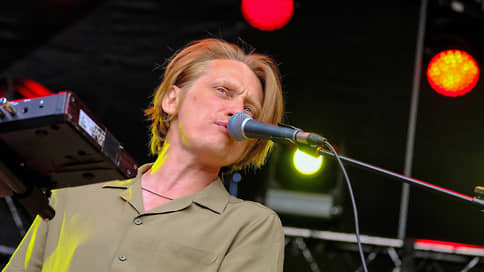“And it needs to be even more primitive” – Kommersant
[ad_1]

On the eve of the celebration of the 300th anniversary of Yekaterinburg, one of the most popular groups in the city, Kurara, released a new album, PP. About why “Curara” needs to be listened to right now, tells Igor Gavrilov.
“Kurara” for a long time and difficultly made its way into the first row of the Ural groups. The cooperation between the founders of the group Yuri Obleukhov and Oleg Yagodin began in the first half of the 1990s, the Kurara brand also has a long, 20-year history. Nevertheless, “Kurara” for a long time remained in the shadow of the more visible and better illuminated in the capitals of the Ural rockers. The main hit of the group, “Kurara Chibana”, appeared in 2013 and remained a hallmark for a very long time. In the second half of the 2010s, the group was finally noticed seriously: “Kurara Chibana”, for example, got into the series “Dead Lake”. Perhaps the point was that the deepening colors of reality finally coincided with the harsh and disturbing mood of the Kurara songs. In 2021, in the album “Brut”, Oleg Yagodin sang: “Mom is coming home from the store. Russia is so beautiful. How low we fall. And nostalgia, always nostalgia, for past heaven and hell.”
The group’s tenth studio album was called “PP”, and the scope for interpretation here is the widest. “Unpredictability, a different sound and a sharp look from the window of a nine-story building in some microdistrict at all changes or historical turns” – this is how the musicians describe the album. On the cover is a monument to “Urals who forged the Victory”, familiar to all Yekaterinburg residents. True, the figure turned its back to the listener. The monument looks just at the aforementioned nine-story building, which fills the entire frame.
The composition of the “Kurara” during its history has changed little. At the stage of recording “Brut”, Vladimir Kopenin, known to Yekaterinburg music lovers from the group “Town of the Chekists”, joined him. Post-production of “PP” was entrusted to Pavel Eremeev from the Usssy group. “We wanted a raw sound, so the choice fell on a representative of the bright Moscow underground, a group we love and respect,” say the members of Kurara. However, “raw sound” is not what comes to mind when listening to “PP”. Rather, it is an urban sound with the maximum presence of various kinds of “street” sounds, but at the same time with elements of psychedelic, mat-rock and kraut-rock, with motifs of American film music of the 1970s and exotic strings.
The album “PP” was born on a land torn apart by contradictions, perhaps even more so than any other Russian region
A constant value in the compositions of “Kurara” – of course, with the exception of instrumental ones – is the voice delivery of Oleg Yagodin. He acts as a dispassionate commentator, a talking head in the news, fixing either the chronicle of the apocalypse or the plots of urban life. “No one is safe at midnight. War again, winter again, and what bastard gives me some special lectures about the unnatural? – in the longest song of the album “Hurry up” there are only a few poetic lines, the rest is pumped up by the growing mood of danger. “Kurara” sings not so much about a specific war or winter, but about a general state of misunderstanding and fatigue from this misunderstanding. This state is achieved primarily by musical means, and the text here is a few large stitches in the instrumental fabric.
In “Idiotism”, the only text that does not belong to the pen of Oleg Yagodin on this album, the main word is “primitive”. “The nail is simply driven into the brutal block. In a drunken space, a straight line is the most promising. The soldier cleans the legal badge with asidol for a long time and tediously. And it needs to be even more primitive.” The late metarealist poet Alexander Eremenko wrote these poems a long time ago, but now they fit right into the sound of Kurara in the early 2020s.
The album “PP” is not so much a story as a state. A view from the window of a nine-story building, a view from behind the back of the monument. And at the same time a rich, intellectually rich musical environment.
“PP” was born on a land torn apart by contradictions, perhaps even more so than any other Russian region. This is also noticeable in music. The Yekaterinburg group Chaif, which once lent its shoulder to the young group Sansara, now also “cancelites” it, helping prohibitionist activists to cancel its concerts. One Yekaterinburg singer, Yulia Chicherina, performs at the forefront of the NVO, another Yekaterinburg singer, Vera Musaelyan, travels around unfriendly Europe with concerts. The city, the starting point of several musical waves that swept the whole country, still vibrates with emotions with the opposite charge. The look of “Kurara” on this city is direct and ruthless, like the look of a monument on a nine-story building, or vice versa.
[ad_2]
Source link






